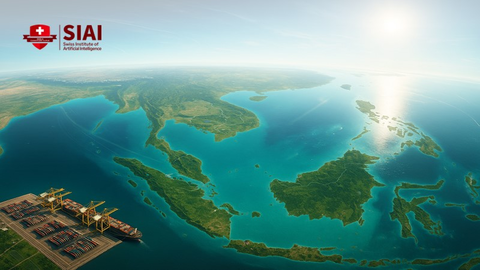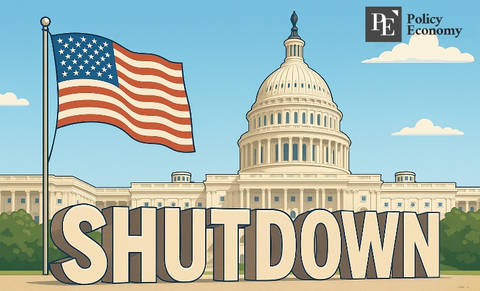[동아시아포럼] 중동 외교의 중심에 선 중국
입력
수정
[동아시아포럼]은 EAST ASIA FORUM에서 전하는 동아시아 정책 동향을 담았습니다. EAST ASIA FORUM은 오스트레일리아 국립대학교(Australia National University)의 크로퍼드 공공정책 학교(Crawford School of Public Policy) 산하의 공공정책과 관련된 정치, 경제, 비즈니스, 법률, 안보, 국제관계 및 사회에 대한 분석 및 연구를 위한 플랫폼입니다.
저희 폴리시코리아(The Policy Korea)와 영어 원문 공개 조건으로 콘텐츠 제휴가 진행 중입니다.

올리버 B. 존(Oliver B. John)은 중동 연구소의 비상주 학자이자 중동에 중점을 둔 정치 경제 컨설팅 회사인 아스트로라베 글로벌 스트래티지 LLC의 설립자 겸 대표입니다. 그는 30년간의 공직 생활을 마치고 2019년 9월 미국 외무부에서 은퇴했습니다.
올리버는 사우디아라비아, 쿠웨이트, 아랍에미리트 주재 미국 대사관에서 경제 담당 참사관으로 10년 동안 근무한 것을 포함하여 해외 근무 경력을 쌓았습니다. 쿠웨이트에서는 1년간 수석 상무관 대행을 역임하기도 했습니다. 다른 해외 근무지로는 쿠웨이트, 튀니지, 스위스 등이 있습니다. 워싱턴에서는 근동국 이집트 사무소의 사무국장 대행, 경제국 통화국의 경제학자, 국무부 정보 및 연구국의 걸프협력이사회(GCC) 및 북아프리카 담당 정보 분석관으로 근무했습니다. 쿠웨이트인 아내와의 사이에 두 자녀를 두고 있습니다.
페르시아만에서 널리 환영받고 미국 행정부에서도 조심스럽게 환영하는 움직임이 있습니다. 중국, 이란, 사우디의 고위 안보 관리들이 리야드와 테헤란 간의 외교 관계를 재개하기로 합의했습니다.
사우디아라비아와 이란은 적어도 2021년부터 긴장을 완화하기 위한 방안을 조용히 논의해 왔지만, 이번 합의에서 중국의 적극적인 역할이 특히 주효했습니다. 중국이 이 지역에서의 외교적 역량을 발휘하여 주요 국제 정치 분쟁을 해결한 것은 이번이 처음입니다. 워싱턴과 베이징 간의 지속되는 지정학적 경쟁을 고려할 때, 일부 전문가들은 중국이 주요 대외 강대국으로서 이 지역에서 미국을 대체할 수 있을지 의문을 제기하고 있습니다.
2023년 3월 10일, 사우디아라비아와 이란은 중국 주최로 5일간의 협상을 마무리하고 두 달 안으로 외교 관계를 복원하기로 합의했습니다. 또한 주권 존중과 내정 불간섭 원칙을 바탕으로 양국 관계를 공고히 하기로 했습니다. 세 나라 대표들은 '지역 및 국제 평화와 안보를 강화하기 위해 모든 노력을 다할 것'이라는 의지를 표명했습니다. 사우디와 이란 외무장관은 4월 6일 베이징에서 회담의 후속 조치를 논의하기 위해 만나기도 했습니다.
이 합의는 잠재적인 긴장 완화를 나타내지만 리야드와 테헤란이 취할 구체적인 조치는 모호하여 추측의 여지가 남기고 있습니다. 이란이 사우디의 핵심 목표인 사우디 영토에 대한 후티 반군의 공격에 대한 지원을 축소할 것이라는 보도가 있었습니다. 이 합의가 '휴전을 가속화하고, 국가적 대화를 시작하고, 예멘에 포괄적인 국가 정부를 구성하는 데 도움이 될 것'이라는 유엔 주재 이란 사절단의 성명은 이러한 견해를 확인하는 것 같습니다.
그러나 후티 반군은 자신들은 이란에 '종속'되지 않았기 때문에 이란-사우디 협정이 그들의 행동에 영향을 미치지 않을 것이라고 재빨리 부인했습니다. 2023년 3월 16일 이란 외무부도 이 협정이 예멘에 적용된다는 사실을 부인하면서 이란이 어떤 약속을 했는지에 대한 의문을 남겼습니다.
중국은 이러한 긴장 상태를 해소하기 위해 외교적 해결책을 추진할 분명한 동기가 있습니다. 중국은 수입 원유의 약 50%를 페르시아만 지역에서 수입하고 있으며, 사우디아라비아는 2021년에 중국의 최대 단일 공급국이었습니다. 또한 중국은 카타르에서 액화 천연가스의 약 7%를 수입하고 있고 최근 장기 공급 계약을 체결하기도 했습니다. 이 지역의 안정성은 중국의 에너지 안보에 매우 중요한데, 이란과 사우디 간의 갈등을 완화하고 양국의 공식적인 외교 관계 재개를 도움으로서 이 지역의 안정성을 높일 수 있습니다.
중국은 사우디아라비아와 이란의 최대 석유 수출 시장이며 2021년 사우디 원유 수출의 4분의 1 이상을 차지하기 때문에 분쟁을 중재할 수 있는 유리한 위치에 있습니다. 2018년 미국이 이란의 석유 산업에 대한 제재를 재개한 이후 이란의 수출은 급격히 감소했는데 이 물량은 이제 중국으로 향할 가능성이 높습니다. 중국은 양측 모두와 강력한 관계를 맺고 있어 이번 협상에서 미국에 비해 외교적 우위를 점할 수 있었습니다.
미국은 바이든 행정부가 취임한 이후 걸프 파트너와 동맹국들에 긴장을 완화하도록 장려해 왔지만 실질적으로 고위급 회의를 성공적으로 주선하거나 촉진하지는 않았습니다.
미중 경쟁이 계속되는 가운데 많은 전문가들은 중국의 외교적 성공이 미국의 역내 영향력 감소를 의미하는지 아니면 미국과 사우디 관계의 표류를 의미하는지 의문을 제기했습니다. 중국 관리들은 지역적 공백을 메우려는 의도가 없다고 부인했지만, 다른 사람들이 이런 결론을 내리는 것은 기꺼이 받아들였습니다. 그들은 '신뢰할 수 있는 중재자'로서 거래를 중개하는 데 있어 '역사적 역할'을 강조하고 이란 정권에 대한 미국의 반대와 달리 지역 분쟁을 해결하기 위해 대화를 사용하는 것이 중요하다고 강조했습니다.
리야드는 또한 중국이 역내에서 미국을 대체하려는 것이 아니라고 주장했으며 협상과 합의 발표 전에 워싱턴에 브리핑했다고 확인했습니다. 사우디 관리들은 미국과 중국을 모두 중요한 파트너로 여기고 있으며 '두 강대국 간의 갈등'의 한가운데에 놓이지 않기를 희망한다고 강조했습니다.
중국은 아직 역내 최고의 대외 안보 보장국으로서 미국에 도전하고 있지는 않지만, 외교적 영향력을 확대하고 있는 것은 분명해 보입니다. 중국은 중국 외교의 효과를 입증함으로써, 사우디아라비아를 비롯한 미국의 역내 파트너들이 중국과의 파트너십을 확대하는 방식으로 관계를 다각화하도록 유도하고 있습니다. 이 협정이 지역 긴장을 완화하는 데 성공한다면 중국의 영향력을 확대할 수 있는 기회가 더 많아질 수 있습니다.
이란과 사우디 간의 갈등 완화는 이 지역과 더 나아가 지역 안보에 전념하고 있는 미국에도 좋은 일입니다. 이번 합의가 미중 경쟁이라는 좁은 틀 안에서 반드시 제로섬 시나리오는 아닙니다. 단기적으로는 중국이 역내 외교적 영향력을 확대하는 것이 합리적이지만, 장기적으로는 중국이 가시적이고 다루기 힘든 지역 분쟁에 휘말릴 위험이 있습니다. 사우디아라비아와 이란 간의 복잡한 관계를 고려할 때 최근의 합의가 지속적인 긴장 완화로 이어질지는 여전히 확신할 수 없습니다.
China takes centre stage in Middle East diplomacy
In a move widely hailed in the Persian Gulf and cautiously welcomed by the United States Administration, senior Chinese, Iranian, and Saudi security officials agreed to re-establish diplomatic relations between Riyadh and Tehran.
Although Saudi Arabia and Iran have been quietly discussing ways to reduce tensions since at least 2021, China’s active role in brokering the agreement is particularly significant. This was likely the first time that China has leveraged its diplomatic ties to the region to resolve a major international political dispute. Given the ongoing geopolitical competition between Washington and Beijing, some observers ask whether China is positioning itself to replace the United States as the major external power in the region.
On 10 March 2023, Saudi Arabia and Iran concluded five days of discussions hosted by China, agreeing to restore diplomatic relations within two months. They also agreed to ground their relations on the principles of respecting sovereignty and non-interference in internal affairs. Delegates from the three countries ‘expressed their keenness to exert all efforts towards enhancing regional and international peace and security’. The Saudi and Iranian foreign ministers met in Beijing on 6 April to follow-up on the discussions.
Although the agreement represents a potential reduction in tensions, it is vague on the concrete steps Riyadh and Tehran will take, leaving room for speculation. Reports suggested that Iran would curtail its support for Houthi attacks on Saudi territory, a key Saudi goal. A statement by Iran’s mission to the UN, that the agreement would ‘accelerate the ceasefire, help start a national dialogue, and form an inclusive national government in Yemen’ seems to confirm this view.
The Houthis quickly denied that the Iran–Saudi deal would affect their actions since they are not ‘subordinate’ to Iran. On 16 March 2023, the Iranian Foreign Ministry also denied that the agreement covers Yemen, leaving open the question as to what, if any, commitments the Iranians might have made.
China has a clear incentive to push for a diplomatic solution to these tensions. Roughly 50 per cent of its imported oilcomes from the Persian Gulf region — Saudi Arabia was its largest single supplier in 2021. It also imports around 7 per cent of its liquid natural gas from Qatar and recently signed a long-term supply contract. Stability in the region is crucial to China’s energy security, and reducing tensions between Iran and Saudi Arabia and helping them resume formal diplomatic ties could increase that stability.
China was well positioned to mediate the dispute, as it is the largest oil export market for both Saudi Arabia and Iran, and accounted for over a quarter of Saudi crude oil exports in 2021. Since the United States reimposed sanctions on Iran’s oil industry in 2018, the country’s exports have dropped sharply, but this supply likely now goes to China. China’s strong relationships with both sides gave it a diplomatic edge over the United States in brokering the deal.
Although the United States had been encouraging its Gulf partners and allies to reduce tensions since the Biden administration took office, the United States had no real prospect of orchestrating such a high-level meeting.
Amid ongoing US–China competition, many observers questioned whether China’s diplomatic success represented a further decline in US regional influence or a drift in US–Saudi relations. While Chinese officials denied they were trying to fill any regional vacuum, they were happy to let others draw this conclusion. They emphasised their ‘historic role’ in brokering the deal as a ‘reliable mediator’ and stressed the importance of using dialogue to settle regional disputes, in contrast with the United States’ opposition to the Iranian regime.
Riyadh also maintained that China was not seeking to replace the United States in the region and confirmed that they briefed Washington before the negotiations and announcing the agreement. Saudi officials stressed that they view both Washington and Beijing as important partners and that they hoped not to be put in the middle of any ‘conflict between the two powers’.
Although China is still not challenging the United States as the preeminent external security guarantor for the region, it appears to be expanding its regional diplomatic influence. By demonstrating the effectiveness of Chinese diplomacy, Beijing encourages Saudi Arabia and other US regional partners to diversify their relations by expanding their partnerships with China. If the agreement succeeds in reducing regional tensions, it could create more opportunities for Chinese influence.
Any reduction in tensions between Iran and Saudi Arabia is good for the region and by extension the United States, which is still committed to regional security. This agreement is not necessarily a zero-sum scenario within the narrow framework of US–China competition. In the short term, it seems logical for China to increase its regional diplomatic influence but in the longer term, China risks getting caught up in thorny, intractable regional disputes. Given the unresolved issues between Saudi Arabia and Iran, it remains uncertain whether the recent agreement will lead to a lasting reduction in tensions.





















